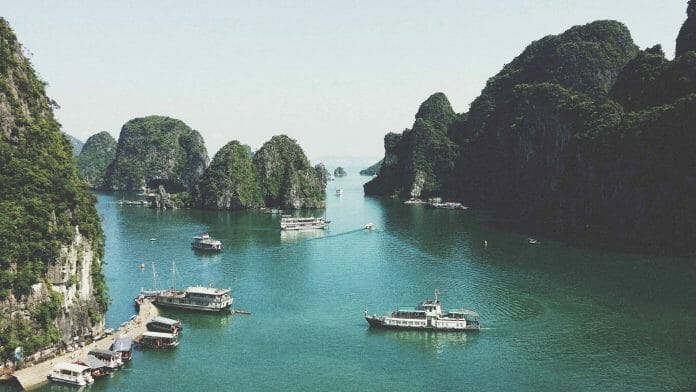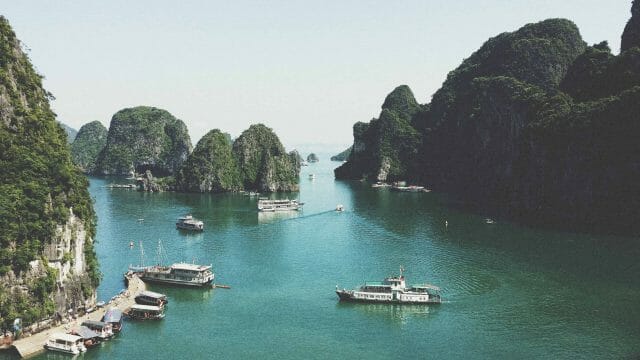Founder of FayFay.com, Kingston Lai talks to Business Today about the entrepreneurial life.
BT: Please tell us the inspiration behindFayFay.com.
My journey to Vietnam started purely for professional reasons. Through Asia Bankers Club which I founded, we had several real estate deals in Vietnam which gave me the opportunity to explore Vietnam over the last 3 years. There is so much more than what a traditional itinerary can offer with so many hidden treasures and experiences that define Vietnam. I also noticed that the country’s tourism industry is still under-developed so it was a clear opportunity at hand.
I started out by giving recommendations to our real estate clients who were visiting Vietnam, sometimes with their family. The frequency of the recommendations increased with most clients enjoying the suggestions which were made so we took the opportunity to create this platform to extend these handpicked personal experiences to avid travelers
BT: Were you always an entrepreneur or is this your first entrepreneurial venture?
Even as a young boy I wanted to be an entrepreneur. I started this dream with my own ice cream business when I was 12. I became an investment banker right after I graduated from the London School of Economics (LSE) but deep inside I still carried my vision of being an entrepreneur. After 12 years as an investment banker, I took the leap of faith when I was 36 and quit my job at Morgan Stanley to start my first business – Asia Bankers Club, which focused on creating investment opportunities in Asia. From thereon I had a taste of being an entrepreneur and couldn’t stop coming up with more businesses to run and become a seasoned entrepreneur. I have to say that entrepreneurship is addictive and gives one a myriad of experiences that keep you excited at all times. I have experienced that different business have different challenges and this breaks away from the monotonous nature of a job with someone else.
BT: Are you optimistic about the growth of travel and tourism in the Southeast Asia region?
Southeast Asia region has been one of the fastest growing tourism market in Asia over the past decade.
Tourist numbers in Southeast Asia increased by 10% in the first four months of 2018, the largest such growth of any region in the world, according to a recent report by the United Nations World Tourism Organisation (UNWTO)
Many countries in the region saw double-digit growth for tourism, including Thailand, Vietnam, Indonesia, the Philippines and Cambodia.
Thailand has seen a huge increase in tourists in the past decade, and now sits fourth on the list of income garnered from tourist receipts, behind the US, Spain and France, raking in a whopping $57.5 billion in 2017.
Vietnam is catching up with the largest increase in the number of arrivals, with a 25.2% growth in the first quarter of the year, compared to the same period last year.
According to Vietnam’s official tourism numbers, total international arrivals in 12 months as of 2017 reached 12,922,151 arrivals, an increase of 29.1% over the same period last year.
It is expected that Vietnam may take over Thailand’s spot in the upcoming decade.
BT: Vietnam seems like a beautiful country, do you think there is a misconception with Asians generally that Vietnam is perceived as a war-ravaged or uninteresting country?
Common misconceptions are that Vietnam is not modern enough, a bit boring (more historical in nature) and some think it’s unsafe as it is not as popular as other SEA countries. However, tourists from countries like Korea are actually more open to visiting Vietnam due to the early business relationship between the two countries and of course the direct flights. The number of visitors from Korea has been very strong. The number of visitors from China is slowly picking up too. With more visitors from neighboring countries, hopefully the true beauty of Vietnam is discovered.
BT: What are some of the must-see spots in Vietnam for those visiting Vietnam for the first time?
Vietnam has so much to offer, but the major cities would be good places to start with. I would recommend visiting the capital, Hanoi,in the north to try the street food and absorb the Old Quarters for a nostalgic vibe. Or Take a tour to Cu Chi Tunnels in Ho Chi Minh City and try the shooting range with an AK47 (best way to distress and completely safe!). Or head to Danang and visit the UNESCO sites nearby (Hoi An Ancient Town and My Son Sanctuary) In fact, Vietnam has so many under the radar natural gems that are unexplored by big groups of tourists that make it ideal for unique experiences. The beaches are still attractive and not too crowded, if you compare to other popular beach destinations in SEA.
BT: Last but not least, tell us about the most memorable travel experience for you.
The first time I visited Da Nang, I was surprised by all the offerings there. One in particular was the small, circular bamboo basket boat (thung chai) by the river which fishermen traditionally used as their main way of transportation for many years. It was amusing to see the dance of the boat as it goes round and round along the river. If you don’t know how to work it, you probably will have hard time crossing the river! I thought it was a very clever and creative idea and later found out that the invention of this boat has a history related to the French colonial period. As the story goes, the French arrived in Vietnam and began levying taxes left, right and centre – including a tax on the ownership of boats. Most of the poor Vietnamese fishermen who depended on boats for their livelihood could not afford to pay the taxes, so they invented a new type of boat: the thung chai.
This experience is a very fond memory from my travels in Vietnam. I seem to find more interesting historical facts every time I travel to a new place in the country.
BT: Did you ever imagine the travel tourism would be digitized?
The travel industry is a very disruptive field. It has had some major reinventions over the years and digitization has been the most impactful change. I believe it was one of the first industries to be digitized matching the idea of globalization. Travelers are very used to booking their flight tickets and hotels online anywhere. Booking travel experiences online is relatively new. The challenge of digitized travel experience would be 1) standardizing the experiences provided by different suppliers and merchants for quality control 2) being viewed as an experienced package provider through a digital screen 3) persuading merchants to go digital with us so we can provide curated travel experiences based on our own unique view of Vietnam. Selling online is still a new concept to some of the merchants and they need time to accept a new way of operations.
Vietnam is an emerging nation in SEA. Besides its warm hospitality that boosts its tourism, the nation is also focused on attracting more investments. There are many travelers coming back to look for business opportunities after visiting Vietnam and understanding the many industries that can still be tapped on. The population is young and innovative in Vietnam. The startup scene is blooming and e-commerce is one of the key focus areas. It is definitely a country to look out for in the next 10 years.













